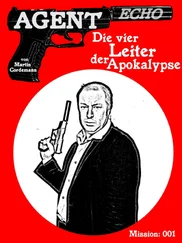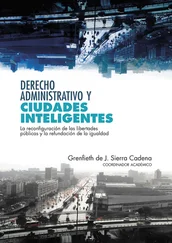She knew what the sound was. It was the drip on to the bedroom floor of blood from the bullet wound that had killed him. There was the faint, coppery taint of blood on the air. But there would be no bloodstain on the bedroom carpet in the morning.
‘I can’t help you any more after this, Suzanne,’ her ghost said. ‘Be careful over the Spalding fellow. You’re putting your hand in a bucket of snakes. And all of them are vipers.’
‘Why did you come to see me? I don’t mean tonight, and I’m very grateful for the help. But why did you come, in the first place?’
Her ghost laughed, softly. ‘Couldn’t help myself. You’re very easy on the eye, so you are, Suzanne. And in a manner of speaking, you came to visit me first. I thought I’d return the compliment. I thought I might pay my respects. And now, I have.’
And he was gone.
Gerald Smythe, Michael Collins series producer and all-round BBC hotshot, had a complexion the same colour as his office walls when he called her up from reception the following morning. Her laminated pass was restored to her. Her library card was returned. There was a note from IT saying that all her computer access codes had been restored. Smythe told her that she had been upped a pay band and should report to him, but need not do so for a month. Any travel expenses she expected to incur in her research work could be drawn in advance from petty cash. It would be helpful if she kept receipts, of course.
‘Of course.’
She caught him staring at her intently as she put the pass and the cards into her bag. The look was an uneasy mingling of intense curiosity and draining fear. Then he excused himself to go and be sick in the lavatory. Then, she later heard, he went home.
She went and sat at the desk she had cleared the previous afternoon. She attracted a few curious glances from her neighbours on the floor. She was sure of three things. Nobody would ever know the level of personal and possibly even slanderous abuse to which Smythe had subjected her over a period of months. Nobody would ever know the true reason for her reinstatement. And she had heard the last ignoble word that Smythe would ever utter in her presence. Actually, when she thought about it, there was a fourth thing she was sure of. She was pretty confident that he had cheated on his expenses for the last time.
She switched on her computer. There was an email for her from the alumni archive at Yale. She read it. Harry Spalding had not graduated. He had been asked to leave towards the end of his second year. He had distinguished himself on the sports field and in the seminar room. But they had felt it necessary to banish him. The issue had been his membership of an organisation, ‘the very existence of which is contrary to the ethos and guiding principles of this university and this great nation, besides being an affront to Almighty God’. The offending organisation was named as the Jericho Club. So now, almost by accident, she had learned a secret. She knew what the self-elected Membership back in Rhode Island had been members of. Their cabal had been the Jericho Club. It must have been a New World offshoot of the Société Jericho . It showed that not all of France’s exports to the great and new republic of America had been so benign and beneficial as de Tocqueville, or Lafayette. And Spalding had taken its guiding principles to war with him, where she had to presume he had made converts of his men. Except for Derry Conway, of course. Spalding had not made a convert of him.
She wished the log of the Dark Echo had not been destroyed. Something compromising had been recorded there. The log had contained some information it was considered necessary to conceal from the world. Given that Spalding’s reputation was so insalubrious anyway, Suzanne could not imagine what it was he would wish to hide. He had seemed in his lifetime a man profoundly beyond shame or remorse. But there had been something in the log, some detail that could hurt him.
She would do an internet search for the Jericho Club. She was not optimistic about finding anything useful that way. She felt that you could divide followers of the occult into very serious and necessarily discreet practitioners on the one hand and a legion of cranks on the other. People who discussed the subject in cyberspace fell largely into the latter category. But she had to try. Before typing in the words, however, she took a pad from her bag and wrote down on it a list of the topics that she considered she needed most urgently to investigate. When she read back to herself what she had written on the pad, the word at the top of her list was Peitersen .
She knew from Martin about Peitersen’s passport made out in the name of Cardoza. She had got nowhere in trying to find out anything about Cardoza Associates. Their motives in bidding for the boat remained a mystery. But Martin had told her about the blessing of the Dark Echo , too, on their last, miserable evening together in the Windmill. She wondered if the Jesuit Monsignor Delaunay would grant her an audience, just out of his obvious affection for the Stannard family. He might tell her nothing. He might let something slip. He might not know anything. But it was Suzanne’s firm belief that Jesuits and secrecy went together like tarts and high heels or tea and biscuits. One was pretty much unthinkable without the other. It was worth a try, if only because she had no other immediate leads.
She looked at her watch. It was ten o’clock. She had glimpsed the red corner of the packet in her bag when she had taken out her notepad. And then she had thought of tea and biscuits. She did not want a biscuit. But she did want to get a cup of tea from the machine and take it outside and sip it while she smoked a cigarette. She stood up. And then she sat down again, because that was how addiction worked, wasn’t it? Insinuating itself in sly increments. She did not allow herself her first smoke of the day until twelve o’clock and it was only just ten. She would be strong.
‘Fuck it,’ she said aloud, standing, gathering her bag. She would cut down when Martin and his father had safely returned. It wasn’t twelve hours since she had spoken to the ghost of Michael Collins. She would give up altogether when she knew that the Stannard men were safe. But now was not the time to try to cut down on her cigarette consumption. Right now, it just wasn’t a realistic ambition at all.
Delaunay was not at the seminary in Northumberland. He was at the Jesuit retreat in Barmouth with a mixed group of ordained priests and novices. She was told her request to see him would be passed on. The rules of the retreat were not strict unless that strictness was self-imposed, she was told. He might be out with a hiking party on Cader Idris. He might be swimming. He might be at prayer, but it was unlikely at this time of day. She was not offered the number of the mobile she was assured he was carrying with him. But she was assured that the monsignor would call her back, probably within the hour.
She did a computer search for the Jericho Club, with predictably useless results. Then she began to ponder on the words of warning spoken by her ghostly visitor of the previous night. He had known something of Spalding’s character. But she could not see how there could be a connection between the two men. Collins had been dead by the late summer of 1922. Spalding had only a year or so later come to Europe from America and begun his splashy, playboy effort to squander his father’s limitless cash.
She put her mind to the possibility of a connection. Spalding’s family had accrued their wealth through banking in New York. By the end of the Great War, America was the wealthiest country in the world and the world’s biggest lender. In 1919, Irish president Eamon de Valera had made Michael Collins Minister of Finance. The logic behind this had been two-fold. For a guerrilla fighter, Collins was surprisingly good at administration. And his impeccable rebel credentials made him just the man to try to raise loans to finance the birth of his new nation from America, a country ideologically opposed to imperialism and a natural friend and champion of any emerging democracy.
Читать дальше












